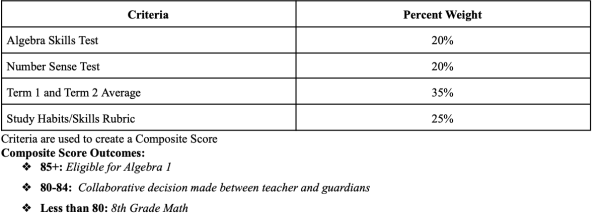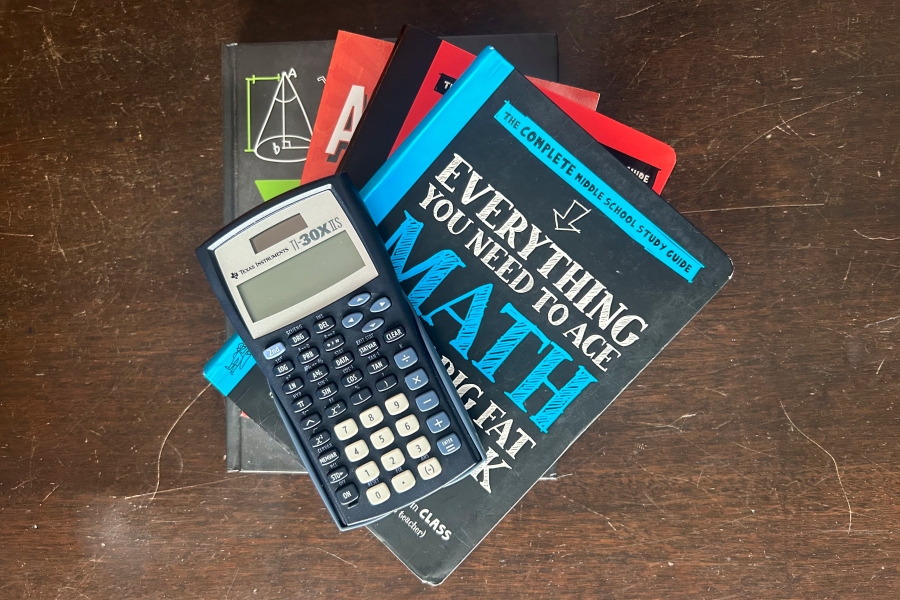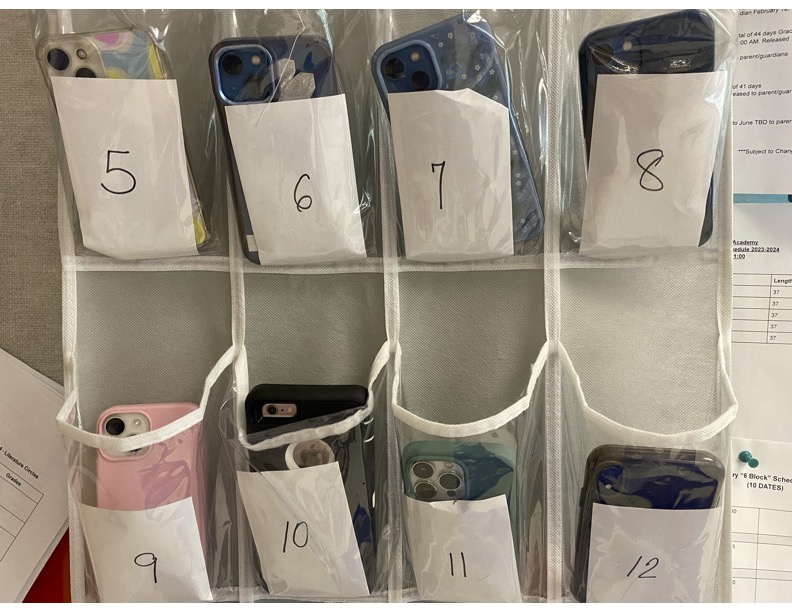In preschool, students learn how to count with their fingers and socialize during snack time. In elementary school, students learn basic PEMDAS properties, later waiting in line for recess. In middle school, students learn how to manage variables in equations while finally gaining the freedom to walk alone in the halls. Entering high school, students have the freedom to choose their classes, each year building off of the previous. But what happens when these freedoms are restricted?
Facing possible budget cuts, it is no secret that the Westford Public Schools (WPS) community has been abuzz with concerns over how its environment will be affected. But atop the numbers of staffing and courses threatened in FY25, WA faces the absence of a crucial opportunity for many students: doubling-up on their math and science courses. Primarily, this now makes taking Algebra 1 in eighth grade a determining factor in STEM course selection opportunities students are exposed to in high school. Therefore, the qualifying grade admission for Algebra 1 at the eighth grade level should be lowered to enable the highest level of student participation.
Currently, WPS follows a flowchart that dictates the order in which math classes can be taught to students. On the most basic level this follows the order: Algebra 1, Geometry, Algebra II, Trig & Pre-Calculus, and then Calculus. However, once students reach Algebra II, they have the freedom to take a variety of other AP and enrichment math courses.
With a deficit in course availability under a failed override, the freedom for students to create their schedule will be severely limited. Many students passionate in a certain subject also tend to ‘double-up’, or take two courses under the same subject at a time, for example Geometry and Algebra II. However, this would no longer be possible. Ridding students of this opportunity would limit them from pursuing a variety of academic goals and ultimately restrict their success.
“Double ups will be challenging. […] Our core obligation is to offer every class that a student needs to meet their graduation requirements. The math side is predominantly when we have most of our double ups […],” principal Dan Twomey said.” There just won’t be the spaces to do so because they’re going to be students that are gonna need to be taking some classes for the graduation requirements. So that’s going to be a challenge. That’s going to be a real one in terms of reducing turnover rate [if the override fails].”
Though a math career is certainly not the aspirations of every student at WA, taking Algebra 1 in eighth grade will send students to high school with the freedom to decide where their interests lie, especially with classes like Honors Chemistry that recommend students to be on an accelerated math path. Additionally, many students later aim for this advanced math path to take calculus by senior year as it often is seen as a beneficiary for college applications.
Even with a passed override of a compromised value of $6.8 million, WA would still be facing cuts to a variety of different courses. This then begs the question: how do we maintain the most academic opportunities with limited ability to double-up?
As of now, seventh grade students must reach a 90% course average of their first and second terms of the year to qualify to take the two placement tests for Algebra 1 in eighth grade. With a minimum 85% Overall Composite Score, composed of the cumulative weight of these three criteria in addition to the student’s grading on a Study Habits/Skills Rubric, students are admitted to take the course early. Students with an 80-84% average have their placement determined by a “collaborative decision made between teacher and guardians.”

Looking at these numbers, theoretically, a student would still be able to meet the required Overall Composite Score with a course average lower than 90%. However, due to the initial grade requirement, many students are cut off completely from taking the tests. Although these numbers were established as a way to safeguard the course for students who are not fully equipped, there are still plenty of students who might just miss the cut off and may still be capable of performing well on the two admission exams, and furthermore, in the class.
This system of placement might have fit the district years ago when it was created, but now with external pressures threatening the limits to which students can follow their interests, it is crucial that WA is able to expand access to the math department and all offshooting courses.
As an article from the Boston Globe explains, taking calculus in high school is a course that sets students up for the foundations of many science and technology based careers. And while WPS students are lucky to have had the opportunity for taking Algebra 1 in eighth grade as opposed to the ongoing debates in other Massachusetts districts, the decision is made during a time when students are not always conscious of how two seventh grade terms will impact the rest of their time in WPS.
“If I was made aware of the long term effects that this test would have on my high school math career, I would have wished that I had the opportunity to take Algebra 1 in eighth grade,” sophomore Jenna Hort said.
Algebra 1 is offered to admitted eighth graders as an honors course, despite the high school only offering a CP level due to reduced interest. The eighth grade math curriculum is also structured to cover the first half of the Algebra 1 curriculum to better prepare students for their first high school math class.
“The eighth grade curriculum is the standard curriculum. It is not an alternative curriculum […],” eighth grade Math teacher Marian McCurley said. “The students are well prepared to take Algebra 1. In fact, the first part of the year is a repeat of the eighth grade curriculum. Students who struggled with the abstract processes in algebra then have a second opportunity to master those topics.”
Based on the skills rubric used as part of the admission process in seventh grade, honor student behavior encompasses far more than good grades. While this academic path is not for all students, taking Algebra 1 in middle school is also a perfect way to ease into the logistics of midterm and final exams as well as high school courses. Though it is important that students take appropriately challenging courses based on their personal skills, this is a decision that eventually could restrict a change in curriculum interest at the high school level.
Students should then be subject to a lower grade requirement, say 85%, just to allow them to take the exams. Those who are truly not prepared for this course in middle school will show it through their exam scores, averaged out with the Overall Composite Score. But for the students who perform well on the admission tests, just dropping below an A average in their seventh grade class, so many more opportunities are opened at the high school level, all of which will not be affected by their limited access to double-up.













